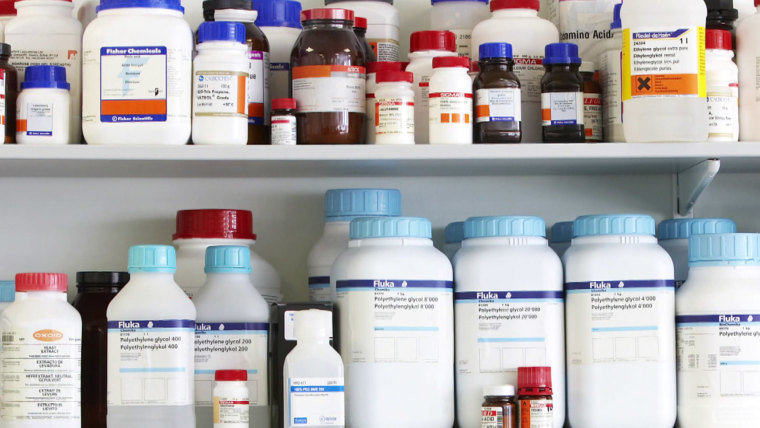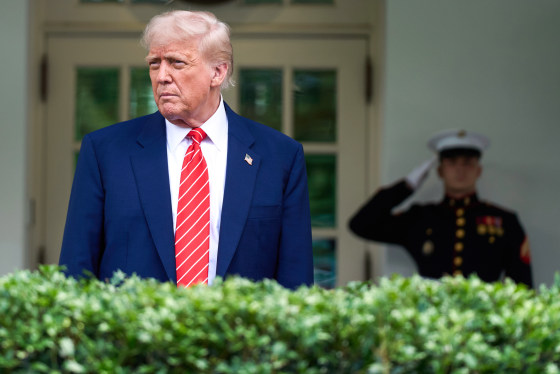President Donald Trump will announce a plan to lower U.S. prescription drug costs by tying the amount the government pays for some medications to prices paid abroad, according to two administration officials familiar with the matter — a strategy he pursued unsuccessfully during his first term.
Trump is expected to sign an executive order early next week that will instruct federal health officials to adopt a “most favored nation” pricing model for certain drugs covered by Medicare, meaning the U.S. would pay no more than the lowest prices paid by other wealthy countries, said the officials, who was granted anonymity because they weren’t authorized to describe internal deliberations.
The plan to sign the executive order was first reported by Politico.
Prescription drug prices in the United States are notoriously higher than in other countries — up to 10 times more than in other nations of similar size and wealth, according to the Rand Corporation, a public policy think tank.
Trump initially tried to implement this policy in 2020 as part of a broader effort by his administration to cut U.S. drug costs, but it was halted by a federal judge following a lawsuit from the drug industry.
The plan would have linked the prices of Medicare Part B drugs — which are medications administered in a health care facility, such as chemotherapy drugs — to what countries like Canada, Germany and the U.K. pay.
The administration at the time estimated it would save U.S. taxpayers more than $85 billion over seven years.

It’s unclear if Trump’s new plan will once again target only Medicare Part B drugs or include other medications covered under the program.
One of the officials said the proposal hasn’t been finalized and could still change. The White House did not respond to a request for comment.
Health policy experts supported Trump’s approach, arguing that drug companies should be forced to match the prices they give other countries.
“I don’t see an excuse for why prices should be all over the place, and we wind up getting charged the most,” said Arthur Caplan, the head of the medical ethics division at NYU Langone Medical Center in New York City. “If this can do something about what is clearly an emergency, which is the ever-increasing cost of drugs as one major source of inflation, I’m for it.”
However, experts also doubted the new policy would withstand pushback from the drug industry.
“I am unsure the new executive order will fare any better,” said Stacie Dusetzina, a health policy professor at Vanderbilt University in Nashville, Tennessee.
Tricia Neuman, executive director for the program on Medicare policy at KFF, a health policy research group, said it would likely have public support if implemented.
More than 3 in 4 adults in the U.S. say the cost of medications is unaffordable, according to a KFF poll.
“The idea of making sure the U.S. pays no more than similar countries polls well, but it’s controversial, and will likely face fierce opposition from the pharmaceutical industry,” Neuman said.
In a statement, Alex Schriver, a spokesperson for Pharmaceutical Research and Manufacturers of America, the drug industry trade group that filed the lawsuit against Trump’s original drug pricing rule, said the Trump administration should instead focus on so-called pharmacy benefit managers to address high drug costs.
PBMs, also known as middlemen, work with insurance companies to negotiate discounted prices from drug companies in exchange for including the drugs in their coverage. In theory, PBMs are supposed to save patients money, but they’ve been the target of U.S. lawmakers following government findings accusing them of inflating the price of drugs.
Caplan noted that even if the drug industry pushes back on the executive order, the administration still has another tool at its disposal: Medicare drug pricing negotiations.
The provision, signed into law by President Joe Biden through the Inflation Reduction Act, allows Medicare to negotiate prices on the costliest medications.
The first round of negotiations is estimated to save Medicare $6 billion in 2026, when the prices go into effect.
In the final days of the Biden administration, the Centers for Medicare and Medicaid Services announced the next round of drugs up for price negotiations. It’s unclear whether the Trump administration is pursuing the negotiations.
Caplan said the administration should support both policies.
“This is a walk and chew gum at the same time,” he said. “You can go after these price disparities and go for the least costly comparable price.”
Last month, CMS rejected a Biden-era proposal for Medicare to cover weight loss drugs. The move would have saved patients money but cost the government about $25 billion over 10 years.

